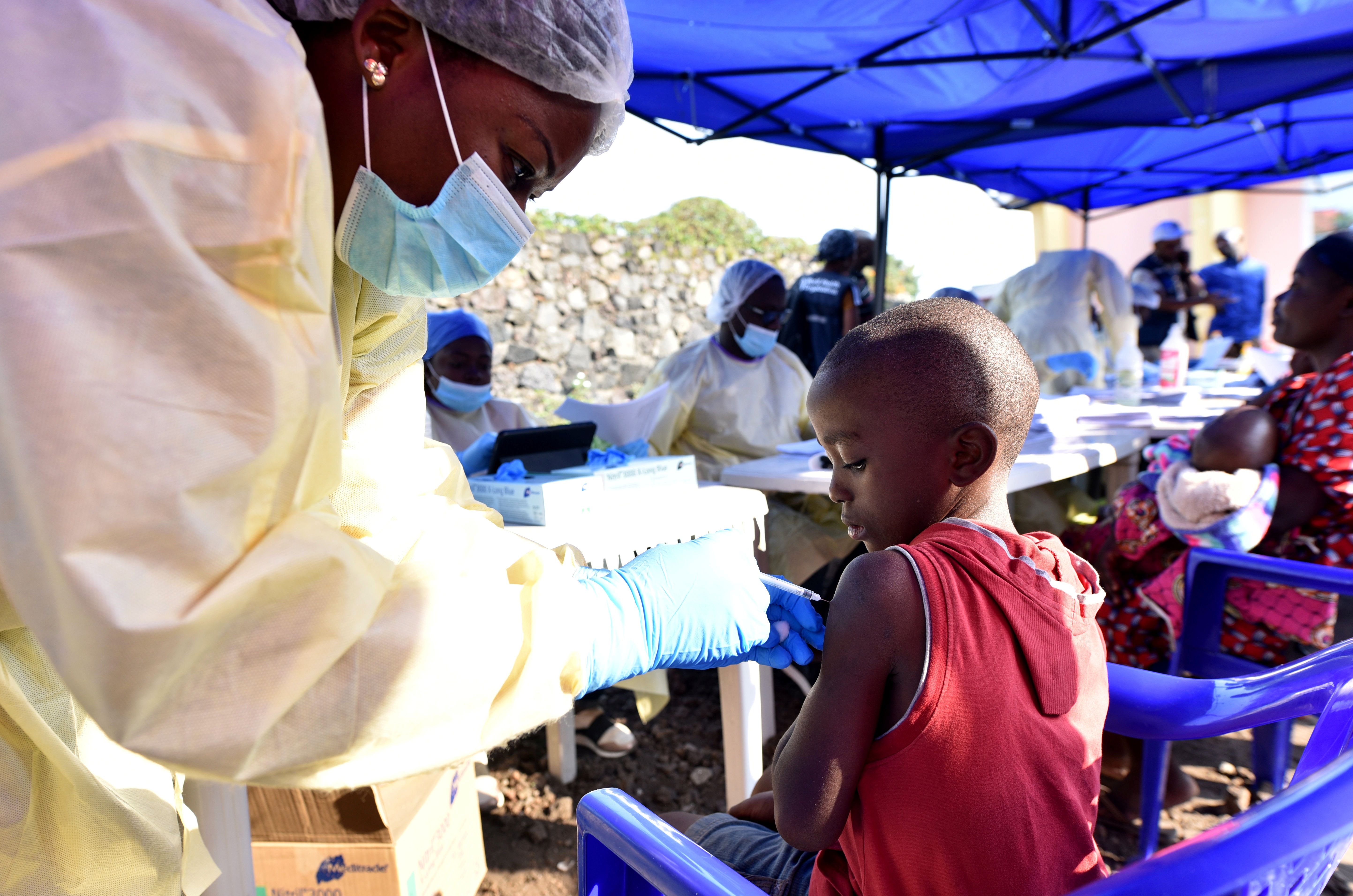
A Congolese health worker administers ebola vaccine to a child at the Himbi Health Centre in Goma, Democratic Republic of Congo, July 17, 2019.
Olivia Acland | Reuters
The deadly Ebola outbreak in the Democratic Republic of the Congo has been declared a global emergency by the World Health Organization days after a case of the virus was confirmed in the Congo city of Goma, which borders neighboring country Rwanda.
So far, more than 1,600 people have died and more than 2,500 have been diagnosed with the virus in the war-torn North Kivu and Ituri provinces of the DRC since the epidemic began in August.
“It is time for the world to take notice and redouble our efforts. We need to work together in solidarity with the DRC to end this outbreak and build a better health system,” WHO Director-General Dr. Tedros Adhanom Ghebreyesus said in a statement Wednesday. “Extraordinary work has been done for almost a year under the most difficult circumstances. We all owe it to these responders — coming from not just WHO but also government, partners and communities — to shoulder more of the burden.”
This is the second-deadliest outbreak of Ebola since the West African epidemic that killed 11,310 and infected 28,616 people in Guinea, Sierra Leone and Liberia from 2014 to 2016.
The WHO defines an international emergency as “an extraordinary event which is determined to constitute a public health risk to other states through the international spread of disease and to potentially require a coordinated international response.”
Though there is high risk of the virus spreading regionally, the threat of it developing outside of the area is still low, Tedros said.
The WHO previously declined three times to declare the outbreak as an international health emergency, to the ire of many health experts who warned the virus had a potential to spread across borders. This is the fifth time in history that a global health emergency has been declared.
Responders have been using an experimental vaccine made by New Jersey-based Merck in an attempt to stop the spread of the virus.
More than 140,000 people in the DRC have been immunized so far.
A health worker puts on Ebola protection gear before entering the Biosecure Emergency Care Unit (CUBE) at the ALIMA (The Alliance for International Medical Action) Ebola treatment centre in Beni, in the Democratic Republic of Congo, March 31, 2019.
Baz Ratner | Reuters
Neighboring countries have feared for months over the virus’ potential to spread. The WHO has said the regional Ebola risk is “very high.”
The WHO’s declaration follows the confirmed case of Ebola in Goma, which is home to nearly 2 million people. Goma borders Rwanda and is “the gateway to the rest of DRC and the world,” the organization said.
The WHO also said a Congolese fisherwoman traveled across the border to Uganda to sell fish on July 11, where she vomited numerous times before returning to Congo and dying of Ebola. Two Congolese-Ugandans also died from the virus after crossing into Uganda in June.
The WHO noted that a $ 54 million funding gap is weighing heavily on the response effort. The organization also urged countries to keep transport routes and borders open to prevent economic consequences that would be caused by travel or trade restrictions.
Ebola hemorrhagic fever “is a rare but severe, often fatal illness in humans” that kills about half of all people who become infected with the virus, according to the WHO. Ebola causes a high fever, hemorrhaging in some cases and even death.
Currently, supportive care is widely implemented to treat Ebola patients. There is no cure for the highly contagious disease, though an ongoing clinical trial is testing four different therapeutic treatments in the hopes that one will prove efficient.
— The Associated Press contributed to this report.
